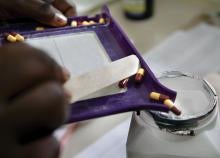Addressing Child Sexual Abuse: A Call to Action for Providers in Latin America
The objective of this communication is to outline the key elements required to train health care providers in various occupations (medicine, psychology, dentistry, nursing, social work, nutrition, physiotherapy, occupational therapy, chemistry, pharmacy, and obstetrics, including midwifery, among others) to address child sexual abuse (CSA) and develop care protocols grounded on evidence-based practices, as well as provide resources to optimize both processes.














